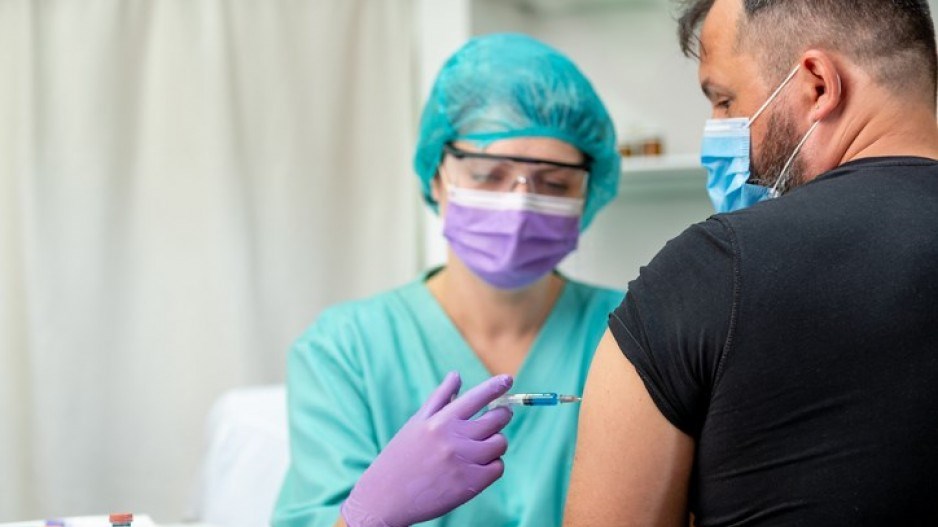B.C.’s latest mass vaccination campaign against COVID-19 has topped 500,000 booster doses administered across the province.
Health Minister Adrian Dix said Tuesday the 505,070 jabs puts the province ahead of schedule.
Dr. Bonnie Henry, B.C.’s provincial health officer, also confirmed that four cases of the new COVID-19 variant known as Omicron were identified over the past weekend. This brings B.C.’s case total to five.
Three of the five cases reported in B.C. so far hit fully vaccinated people. All five cases are tied to people who had recently travelled internationally.
Henry added there are other “suspect and pending” COVID-19 cases that will likely turn out to be tied to the Omicron variant.
“It seems like we’re on this never-ending uncertainty,” Henry said, acknowledging such uncertainty over this new variant can be causing stress, anxiety and depression for many British Columbians.
“They’ve all been mild cases or asymptomatic cases.”
She said the cases were detected during random screenings at the airport and added that “clearly, clearly people should be vaccinated before they travel.”
It remains unclear to what degree vaccines remain effective against the new variant as the recent breakthrough cases in B.C. represent an extremely small sample size.
“This booster may be enough to get us through the next respiratory season or longer,” Henry said.
“Looking at the way this virus has mutated and changed over time, what we need to do is focus on immunizing other parts of the world.”
She said she does not intend to introduce more restrictions during the holiday season.
Henry also revealed that more supply of the AstraZeneca plc vaccines are on their way for those wishing to complete their vaccination with a viral vector vaccine rather than mixing and matching with the mRNA vaccines offered by Pfizer Inc. and Moderna Inc.
More supplies of the single-dose Johnson & Johnson vaccine are also expected to arrive in the province in the near future.
British Columbians interested in receiving the Johnson & Johnson vaccine or a second AstraZeneca dose can call 1-833-838-2323.
B.C. began its booster campaign in September, zeroing in on higher-risk populations such as those ages 70 years and older, Indigenous populations in rural locations, residents in long-term-care and assisted-living, the immunosuppressed and health-care workers who received their initial two doses at a shorter interval than the general population.
Last week the National Advisory Committee on Immunization (NACI) said it now “strongly recommends” boosters are offered at least six months after a second dose for those 50 or older, long-term care home residents, Indigenous people and those who received two doses of the AstraZeneca than the mRNA products.
B.C. health officials committed in October to making third doses available to British Columbians who received their second doses at least six to eight months prior.
And while NACI is recommending those 50 or older receive their third dose at least six months after their second, Dix said last week “priority has been given to people over 70 because they got their second doses first and because they are the most vulnerable people.”
As mass vaccine clinics have shuttered following the initial one- and two-dose campaigns, the province has been turning to smaller clinics and pharmacies to administer such doses.
And, as with the first mass vaccination campaign, the booster doses will be prioritized based on age and vulnerability.
The government estimates it will begin administering boosters in January to those considered clinically extremely vulnerable (but not immunosuppressed), health-care workers in long-term-care and assisted-living, health-care workers in the community and then the remaining general population. Henry said the government is still awaiting data before determining if those ages 12-17 will require boosters.
British Columbians who initially received the AstraZeneca vaccine will only be offered mRNA vaccines — either Pfizer or Moderna.
Mixing and matching vaccines has been an accepted practice in B.C. and Canada throughout much of the vaccination campaign, but was only given the nod in the U.S. in October.




